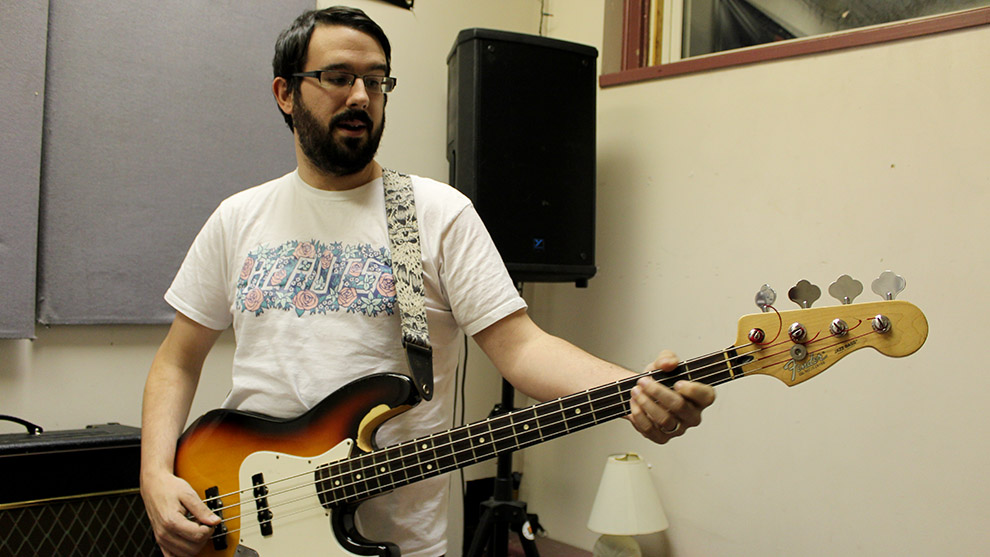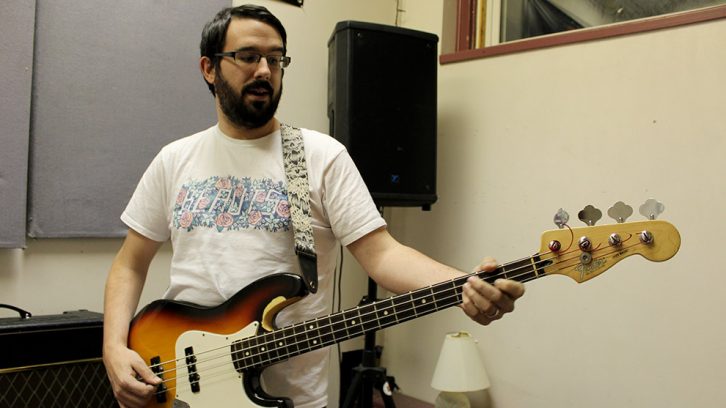Local Music
Four years and counting: Trevor Murphy wins again
The Halifax is Burning host explains his role in the Atlantic Canadian music scene

caption
In addition to his hosting duties, Murphy is also a publicist and multi-instrumentalist with his band, Quiet Parade.
caption
Murphy is a radio host, publicist and multi-instrumentalist with his band, Quiet Parade.Trevor Murphy is on fire — metaphorically.
His hour-long weekly show, Halifax is Burning, won Radio Program of the Year for the fourth straight year at the Music Nova Scotia Awards in Truro last weekend.
Murphy also won Publicist of the Year for his work with Pigeon Row and Alternative Recording of the Year for his band, Quiet Parade’s self-titled album.
“I’m sort of notoriously busy always,” Murphy says.
Music Nova Scotia Awards are voted on by others who work in the music industry.
“That part of it is certainly nice,” he says.
Halifax is Burning first went on the air in September 2009. Although Murphy’s changed the format slightly in the past year, in an attempt to appeal to listeners from outside Halifax, its mandate has remained the same: to play music from up and coming artists in Atlantic Canada.
Murphy makes his living as a publicist. He puts in around three hours of work each week to prepare for his show and receives no compensation for his hosting duties. However, the gig has provided him the opportunity to interview well-known artists like Hayden, who Murphy’s always been a fan of, and Mike O’Neill, formerly a member of The Inbreds and now a member of TUNS.
As part of the show’s new format, he’s making an effort to tape more interviews with local artists. These interviews are condensed for the program, but Murphy’s recently started making the full-length versions available on iTunes.
The show is broadcast on CKDU-FM, a campus and community radio station that’s based out of Dalhousie University. These radio stations differ from commercial radio in that their licences limit the number of hits they are allowed to play.
“I think that radio still remains a powerful medium,” Murphy says. These radio stations, he says, provide “a voice for the voiceless.”
This, he continues, makes CKDU the perfect home for Halifax is Burning.
As the host of a show on a campus station, Murphy appreciates the freedom CKDU gives him to pick the music he wants to play, as well as the role his show has played in helping local artists get airtime.
“I get young bands coming to me and saying, ‘can you play my stuff on the radio?’” he says, citing Halifax natives Walrus as an example. “I’m happy to be that person.”
Darryl Smith, music director at CKDU, is glad the station has a show like Murphy’s.
“Trevor’s a big champion of local stuff,” says Smith. “Anything that’s championing local music is good … and his show is the best function of that.”
Murphy often gets asked if he’d ever consider moving to a larger station. Although he’s currently in the process of syndicating the show and pitching it to radio stations in other locations, he remains loyal to CKDU.
“CKDU was there for me from the beginning, so my allegiance is there,” he says.
Besides, Murphy says he could never do a show like Halifax is Burning on commercial radio. With CKDU, there’s no higher office dictating what he has to play and he curates the show’s playlists himself.
The 1990s are still commonly seen as the heyday of the Halifax music scene. Artists like Sloan and Thrush Hermit made people commonly refer to the city as the “Seattle of the north.”
Murphy and Halifax is Burning aims to remind people that the Halifax music scene is still as relevant.
“There’s so much talent and so much good stuff that happens around here that it’s worth celebrating,” he says.
Halifax is Burning airs Tuesday nights from 6:30 to 7:30 p.m. on CKDU 88.1 FM. It can also be streamed online at ckdu.ca.

